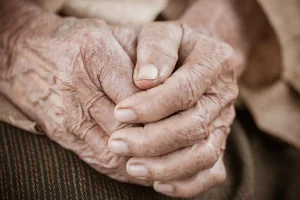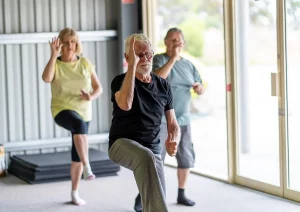ON JANUARY 1, 1989, a woman in Los Angeles called 911, saying she’d been badly beaten by her husband and was in fear for her life. When the police arrived they found, what records called, “a terrified woman” hiding in the bushes, yelling “He’s going to kill me! He’s going to kill me!”
Her husband was charged and pleaded no contest to spousal abuse and then given a wrist slap of sorts that included some community service hours, a small fine, and two years’ probation. That “terrified woman” was Nicole Brown Simpson, and five years later she was dead. Oh, and in case you forgot, her husband was former NFL player O.J. Simpson, who was later found liable for her wrongful death in a civil court case.
Back to present day. We’ve all seen or heard about the shocking video from February released by the ever-savvy TMZ website, showing Baltimore Ravens’ star running back Ray Rice knocking his then-fiancée Janay out cold in a casino elevator. And while Nicole Brown Simpson made sure to reach out to the authorities, Janay Rice never called the cops — or at least she hasn’t yet.
The fact that both Rice and Simpson were NFL players is merely a coincidence, but what’s unsettling in both the recent elevator incident and that night in 1989 is the free pass that both men were given (by law enforcement and the NFL) seemingly because they were professional athletes.
For starters, the NFL has proved by its actions that, unless domestic violence is caught on tape and retrieved by a news source that decides to publish it, well, then everything’s smooth sailing!
It’s been proven that, before the video was released to the public, the NFL knew about the incident, although it was quick to claim that it had only seen the part of the video where Rice dragged his unconscious fiancée out of the elevator (as if that’s not bad enough). They thought an appropriate punishment was suspending Rice for two games. But once the Internet caught wind and unleashed its wrath, the Ravens fired Rice and the NFL suspended him indefinitely. The NFL now insists that no one from the organization had ever seen the entire tape. Fishy.
Football aside, the most disturbing part of the whole ordeal is the way in which Rice’s wife came forward and responded to the firing. She apologized for her alleged “role in that night.”
We can’t jump to conclusions. What happens behind closed doors is private, and Janay Rice has said that the battering in the elevator was an isolated incident. But the most disturbing development to this story is the Instagram “confessional” that she posted after the full video was released. In the statement that she posted to her Instagram account, she admonishes the media and the “unwanted opinions of the public” for the pain that they have caused her family, and claims that “to take something away from the man [she loves] that he has worked his ass for all of his life just to gain ratings is horrific.” In short, she places the blame on the media, on the public, on the NFL and the Ravens, on every thing except what got Rice and his wife in this predicament in the first place — the horrifyingly violent action he committed. The implications of her statements are far more worrisome than the NFL’s blatant lack of morals and obvious interests in preserving their brand image and financial investments, because they echo so clearly the self-blaming behavior that many victims of spousal violence exhibit after the violence comes to light.
And this isn’t the first time our culture has witnessed the loyal wife standing by her wrong-doing husband. Think Hilary Clinton and Vanessa Laine Bryant (Kobe Bryant’s wife), or the laundry list of other wives choosing to condone whatever debauchery, violent or not, that has been committed by their famous husbands. Maybe they were persuaded by the people around them, for whatever reasons, to stay, and thus deal with the matter privately.
But this Ray Rice incident seems so, SO, exceptionally different. How can we let such a grotesque display of domestic violence that became public remain private?
There’s no doubt that the NFL would have preferred to keep this matter under wrap, handling this incident like it’s a game. Domestic abuse is just like a penalty on the field — throw the yellow flag and it’s been dealt with. Lesson learned.
From an outsider’s perspective who could give two hoots what Ray Rice’s football future entails, it’s interesting to learn about the NFL’s code of ethics. For instance, if a player is caught smoking pot he will get suspended for more games than if he’s caught kicking the crap out of his wife or girlfriend. But that’s neither here nor there, apparently.
In a 1994 New York Times article about the Simpson case, Lucy Friedman, the executive director at the time of a non-profit service for battered women was quoted saying, “[Domestic violence is] still not considered as serious a crime as battering on the street, and many women are reluctant to pursue it forcefully.”
Domestic violence can’t just be pushed aside and written off with a couple of game suspensions and a firing. It must be pursued forcefully. There should be serious consequences the first time it happens, not when it’s too late. And it shouldn’t matter if the person committing the crime is an NFL player or a plumber. And while the media frenzy surrounding the terrible video is still palpable, like most news stories, there’s the chance that it will be soon forgotten as we move on, facing the fresh batch of tomorrow’s headlines. But we can’t let it happen this time.
I don’t know Janay Rice. Yes, she might be the wife of a (former) NFL player, but she’s just a regular woman like you or me, or like the women you know — a sister, a daughter, a mother, a friend. Maybe she’s scared, maybe she’s feeling pressured and sees no other alternatives, and maybe she needs more help than everyone around her thinks.
Learn more about domestic violence here.

















